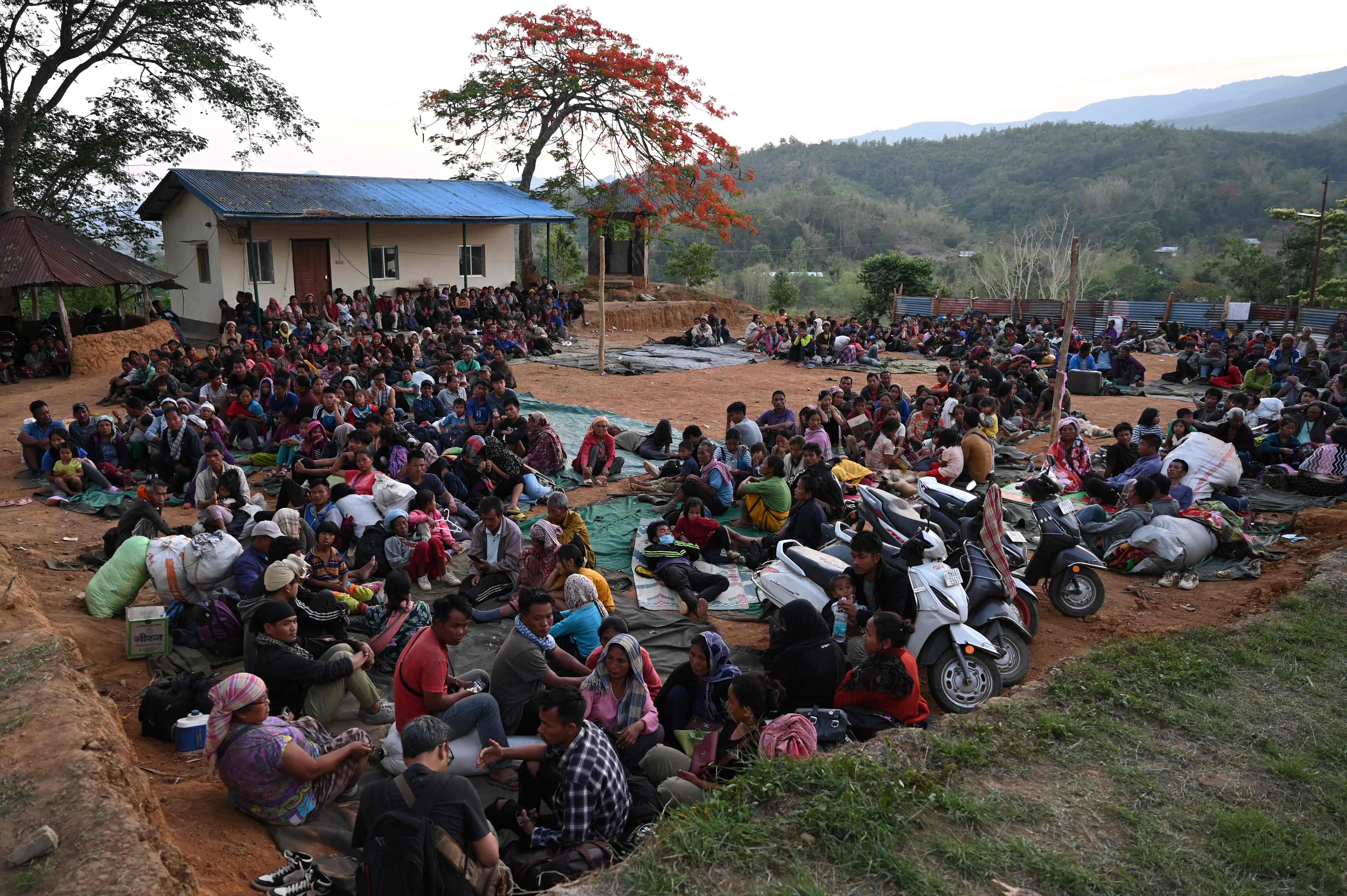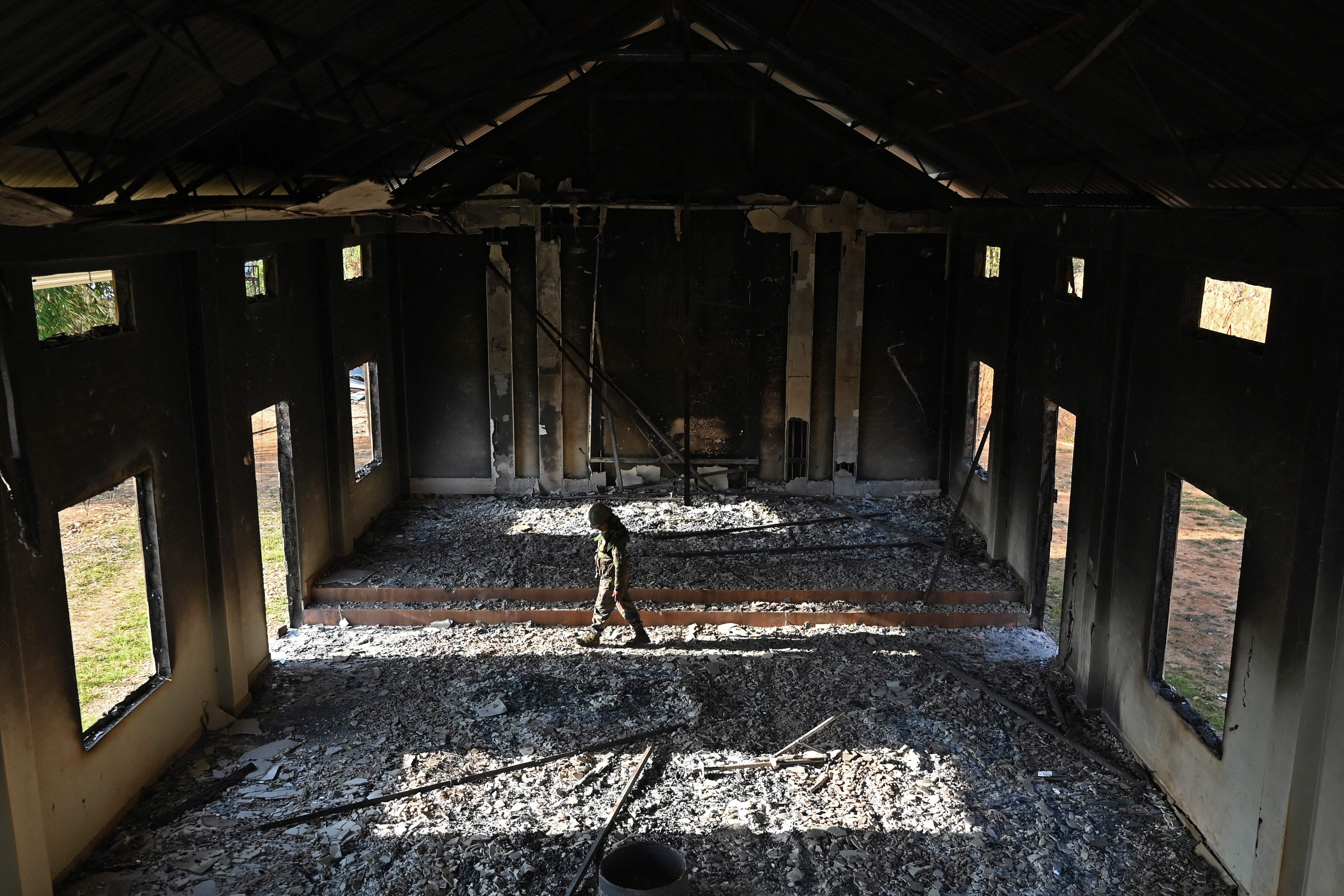Manipur: Death toll rises to 60 in India’s northeastern state after ethnic tension leads to violent clashes
State government’s disclosure of death toll is the first one ever since violence unfolded last week
Your support helps us to tell the story
From reproductive rights to climate change to Big Tech, The Independent is on the ground when the story is developing. Whether it's investigating the financials of Elon Musk's pro-Trump PAC or producing our latest documentary, 'The A Word', which shines a light on the American women fighting for reproductive rights, we know how important it is to parse out the facts from the messaging.
At such a critical moment in US history, we need reporters on the ground. Your donation allows us to keep sending journalists to speak to both sides of the story.
The Independent is trusted by Americans across the entire political spectrum. And unlike many other quality news outlets, we choose not to lock Americans out of our reporting and analysis with paywalls. We believe quality journalism should be available to everyone, paid for by those who can afford it.
Your support makes all the difference.At least 60 people have died in northeastern India’s Manipur state after a spate of violence broke out last week in the wake of ethnic tension.
The violence that broke out on 3 May has led not just to the loss of life, but widespread displacement of local communities, scores of injuries and large-scale property destruction.
The state government’s disclosure of the death toll on Monday was the first one ever since the violence unfolded last week.
At a press conference on Monday evening, state chief minister N Biren Singh, who belongs to prime minister Narendra Modi’s ruling Bharatiya Janata Party (BJP), said 60 people were killed, 231 injured and 1,700 houses, including religious places, were burnt in the violence, reported Press Trust of India.
Earlier at a press conference, Kuldiep Singh, security adviser to the Manipur government, put the toll at 65, reported The Indian Express.
In a separate statement on Twitter, Mr Singh said more than 20,000 people have been evacuated.
“In a positive development, more than 20,000 people have been moved to safety, curfews were partially relaxed and confidence have been built among the public of the state. I hope we will be able to attain peace and get back to normal life very soon.”
The state government has also claimed that the situation has been brought under control by the police and army that have patrolled the streets and enforced a curfew that is still in place.
Earlier, the situation was deemed serious enough by the state government for it to issue “shoot at sight” orders for some extreme cases.
Mr Singh said thousands of civilians are now being escorted to their homes by security personnel.

He added that 1,041 guns and 7,460 rounds of ammunition were looted from security personnel during the violence.
The chief minister said efforts are being made to bring back people who have been forced to leave their homes due to the violence in different parts of the state, including in Churachandpur, Ukhrul, Imphal West, Imphal East and Kangpokpi districts.
A cabinet panel has also been formed to oversee the movement of stranded people.
The chief minister said the state government will provide an ex gratia of Rs 500,000 (approx £4,829) to the families of the deceased, with Rs 200,000 (approx £3,863) to those who suffered major injuries and Rs 25,000 (approx £241) to those with minor injuries.
Also on Monday, India’s Supreme Court expressed concerns about the “humanitarian problem” arising out of the several days of violence.
The court was hearing a petition filed by the Manipur Tribal Forum, Delhi, seeking a probe by a special investigation team into the violence and another filed by a Manipur lawmaker Dinganglung Gangmei, challenging the Manipur High Court order asking the state government’s recommendation on inclusion of Meiteis as STs, reported The Indian Express.
“Our immediate target is protection... stabilisation. We are concerned with the humanitarian problem,” said the bench headed by chief justice of India DY Chandrachud.
Mr Chandrachud also said the court is concerned about “the loss of life, about the loss of property”.
The federal and Manipur governments told the court that the state was “returning to normalcy” and no violence had been reported over the last two days.
Solicitor general Tushar Mehta, appearing for the government, said peace meetings were being held in disturbed areas.

The court will take up the case for hearing again on 17 March.
Violence in the state, that activists and commentators have said has often been ignored by the country’s mainstream media, first broke out on 3 May after a “Tribal Solidarity March” called by the All Tribal Students’ Union of Manipur (ATSUM).
The march was organised in protest against the demand for inclusion of the majority Meitei community in the Scheduled Tribe (ST) category, following a 19 April Manipur High Court directive.
Under Indian law some government jobs, college admissions and electoral seats – from village councils to parliament – are reserved for communities under the Scheduled Tribe category as a form of affirmative action to tackle historical structural inequality and discrimination.
Tribal groups like the Kukis have opposed the Meitei community’s inclusion in the list fearing opportunity and job loss due to the group’s demographically and politically advantageous position.
The tension gave rise to the widespread violence that unfolded in many districts across the state.




Join our commenting forum
Join thought-provoking conversations, follow other Independent readers and see their replies
Comments